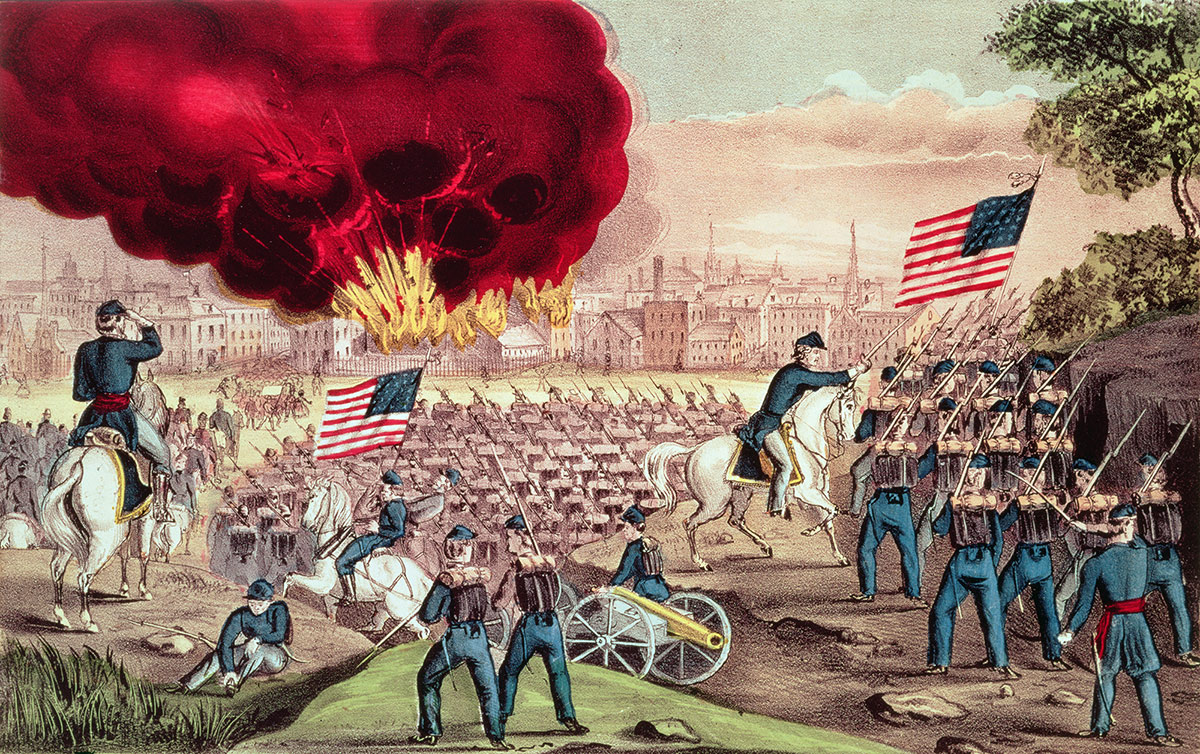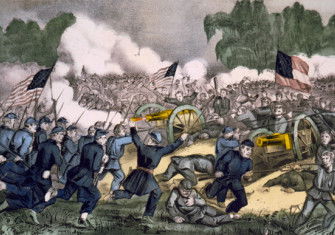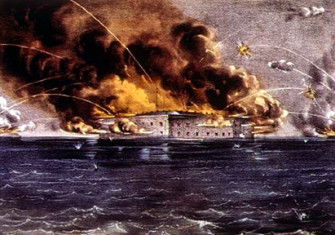General Sherman’s Total War
‘War is an uncivil game and can’t be civilised’, said one Union sergeant of General Sherman’s rampage through Georgia in 1864. Matt Carr discusses this turning point in the American Civil War.

On November 15th, 1864 60,000 Union troops under the command of General William Tecumseh Sherman abandoned the burning city of Atlanta and marched into central Georgia to begin one of the most celebrated campaigns of the American Civil War. Only two months previously he had become the hero of the North when his 100,000-strong army took Atlanta after a gruelling summer campaign, effectively saving the incumbent President Abraham Lincoln from defeat in the autumn presidential elections. It was an action that surprised his contemporaries. Having conquered the ‘Gateway to the South’, most observers assumed that Sherman would garrison Atlanta and head northwards into Virginia, where the Union’s eastern armies, under the command of his great friend Ulysses S. Grant, were locked in a bloody stalemate with Robert E. Lee’s Army of Northern Virginia around the Confederate capital, Richmond.







